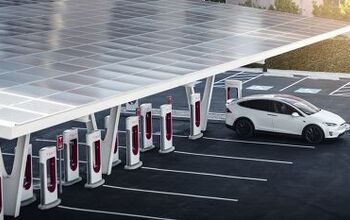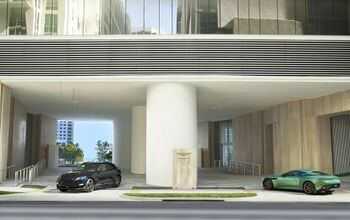Germany: Judge Blasts Speed Cameras as Cash Grab
A veteran district court judge in Herford, Germany earlier this month dismissed 42 speed camera citations on the grounds that they were not issued for any legitimate safety purpose. Judge Helmut Knoner blasted the use of cameras that has turned into a multi-billion-dollar worldwide industry.
“Speed cameras are often a big rip-off,” Knoner said. “There is no law that regulates when, where and how measurements are made. For me, the reasonable suspicion is that cities, counties and police authorities only want to make money.”
Knoner vowed not to convict anyone based on speed camera evidence until the law changes to provide clear protections for motorists. Existing prosecutions take advantage of statutes designed to fight terrorism and organized crime, not traffic violations. Knoner argued that the state was misapplying the law. As long as a driver remains silent, a photograph is insufficient, absent other evidence, to identify the offender. He added that there was an inherent conflict of interest in having local officials decide where to place cameras considering the amount of money they are able to generate. He said that if the state wants to raise revenue, it should raise taxes, not issue tickets.
“How can I judge whether a speed camera to make money or was set up because of an accident black spot?” Knoner wrote in his ruling. “We need rules on how and where should be photographed and that speed cameras are set up there where it has meaning and purpose.”
Knoner has served on the bench for thirty years. Prosecutors are now looking at the possibility of appealing the cases. In an online chat with Stern TV last week, the judge expanded on his reasoning.
“In recent years, the density of monitoring by automated systems and new methods (e.g. laser) has increased significantly,” Knoner said. “Now, digital technology watches 24 hours a day, 365 days a year. The situation on the streets alternates between dense traffic and very low-traffic. Monitoring systems do not adapt. If there is any breach it suspects a ‘speedster.’ Because of the new technology, I think it is possible that the high-volume monitoring will continue to increase, possibly only for financial reasons. This must be stopped.”
Knoner emphasized that the procedural rules are put in place to prevent an abuse of power by the state. He explained that it is essential not to allow the government to violate its own rules. He hoped other judges would join in his effort.
“If many judges participate, it will put considerable pressure on the federal government,” Knoner said. “The government then will have no choice but to establish clear rules.”
[Courtesy: Thenewspaper.com]
More by The Newspaper
Latest Car Reviews
Read moreLatest Product Reviews
Read moreRecent Comments
- V8fairy Not scared, but I would be reluctant to put my trust in it. The technology is just not quite there yet
- V8fairy Headlights that switch on/off with the ignition - similar to the requirement that Sweden has- lights must run any time the car is on.Definitely knobs and buttons, touchscreens should only be for navigation and phone mirroring and configuration of non essential items like stereo balance/ fade etc>Bagpipes for following too close.A following distance warning system - I'd be happy to see made mandatory. And bagpipes would be a good choice for this, so hard to put up with!ABS probably should be a mandatory requirementI personally would like to have blind spot monitoring, although should absolutely NOT be mandatory. Is there a blind spot monitoring kit that could be rerofitted to a 1980 Cadillac?
- IBx1 A manual transmission
- Bd2 All these inane posts (often referencing Hyundai, Kia) the past week are by "Anal" who has been using my handle, so just ignore them...
- 3-On-The-Tree I was disappointed that when I bought my 2002 Suzuki GSX1300R that the Europeans put a mandatory speed limiter on it from 197mph down to 186mph for the 2002 year U.S models.


































Comments
Join the conversation
Right he is. Let's praise the independence of judges. Income-wise, German communities DO rely on speeding tickets. Usually, speed-traps are set up at four-lane inner city roads, with ample bushes to hide, not on accident-prone spots. Same with Autobahns. Driving with about 180 km/h on a totally empty Autobahn does not impose any dangers to anyone, but offers a nice source of income from machine-ticketing to our overlords. Nobody cares about REAL dangerous driving, because there is no way of automating the prosecution of such offenses. I've got two "speeding" tickets over the last 5 years for exceeding the speed limit by 4 km/h and 6 km/h somewhere in the woods, by a "Kommunaler Interessenverband" (a society set up by broken municipalities in order to cash money from "speeders"). After this "Interessenverband" was dissolved by court order due to corruption and criminal offenses and there was no real speed ticketing for more than a year, nothing changed with regard to safety on the road. Just a decrease in income for the communities involved setting up this scheme. Now let's wait for the chorus of the do-gooders singing: "Just obey the speed limits" and "If only one accident is prevented".
YES!!!!!!!!!!!!!!!!!! His Honor doesn't beat around the bush or sugarcoat the issue. Something you won't hear from spineless politicians or bureaucrats whose coffers depend on $$$$ from said industry...